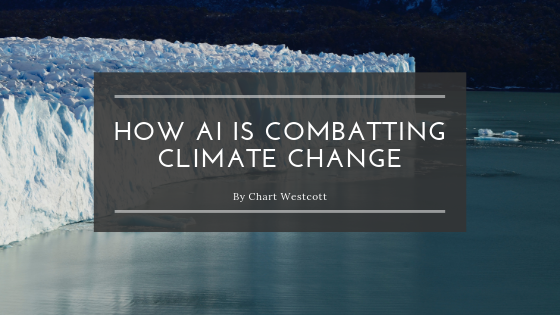The results of climate change are staggering and increasing at an alarming rate. Many companies are taking initiatives to combat and even reverse the side effects of this global crisis that we are experiencing. We cannot get rid of the use of fossil fuels overnight or slow down industrialization throughout the world, however, as climate change persists, so does the advancement of technologies like machine learning and Artificial Intelligence (AI). As a result of increased awareness and eco-friendly trends, we are getting better at using these technological advances to help us take steps to reverse climate change.
In order to predict the future effects of climate change, we need to first study the current ramifications that we are experiencing. Artificial Intelligence can help in learning the patterns of climate change conditions. We have machines that can automatically collect data from sensors or gauges and store this information for us to review. AI technologies can also allow the machines to learn how to analyze the data without human assistance and present it appropriately. This provides scientists with faster analysis and reading of the condition of climate change in various locations and environments. Furthermore, climate scientists can then use this information to forecast the future risks of climate change.
Climate scientists can also use the information that they collect in collaboration with those who are in charge of making decisions on how to best revert these trends. This partnership between scientists and decision-makers can lead to the development of climate change solutions. In a digital age where education and awareness are transmitted almost entirely online, the connection between data analysis and data presentation is becoming seamless and instantaneous. AI makes it much simpler for individuals and companies to learn about their impact on climate change.
Generating education and awareness of the impact of each individual or company on the climate change crisis is a vital first step in taking the initiative to reverse or eliminate climate change. Individuals and companies are more inclined to reduce their carbon footprint when they can see the effects that they cause. Machine learning and AI not only provide a more efficient way to analyze and predict the effects of climate change, but technology allows companies to more easily become eco-friendly. “Smart” inventions and eco-focused agendas like IoT technology, smart light bulbs, smart thermostats, irrigation systems, and recycling programs can be easily adapted into a business, corporation, or home are small measures that make a big impact.
Utilizing AI and machine learning is no longer just for convenience. The global state of our climate will benefit immensely from the data that can be collected and presented as a result of technological advancements.
This article was originally published on ChartWestcott.com



